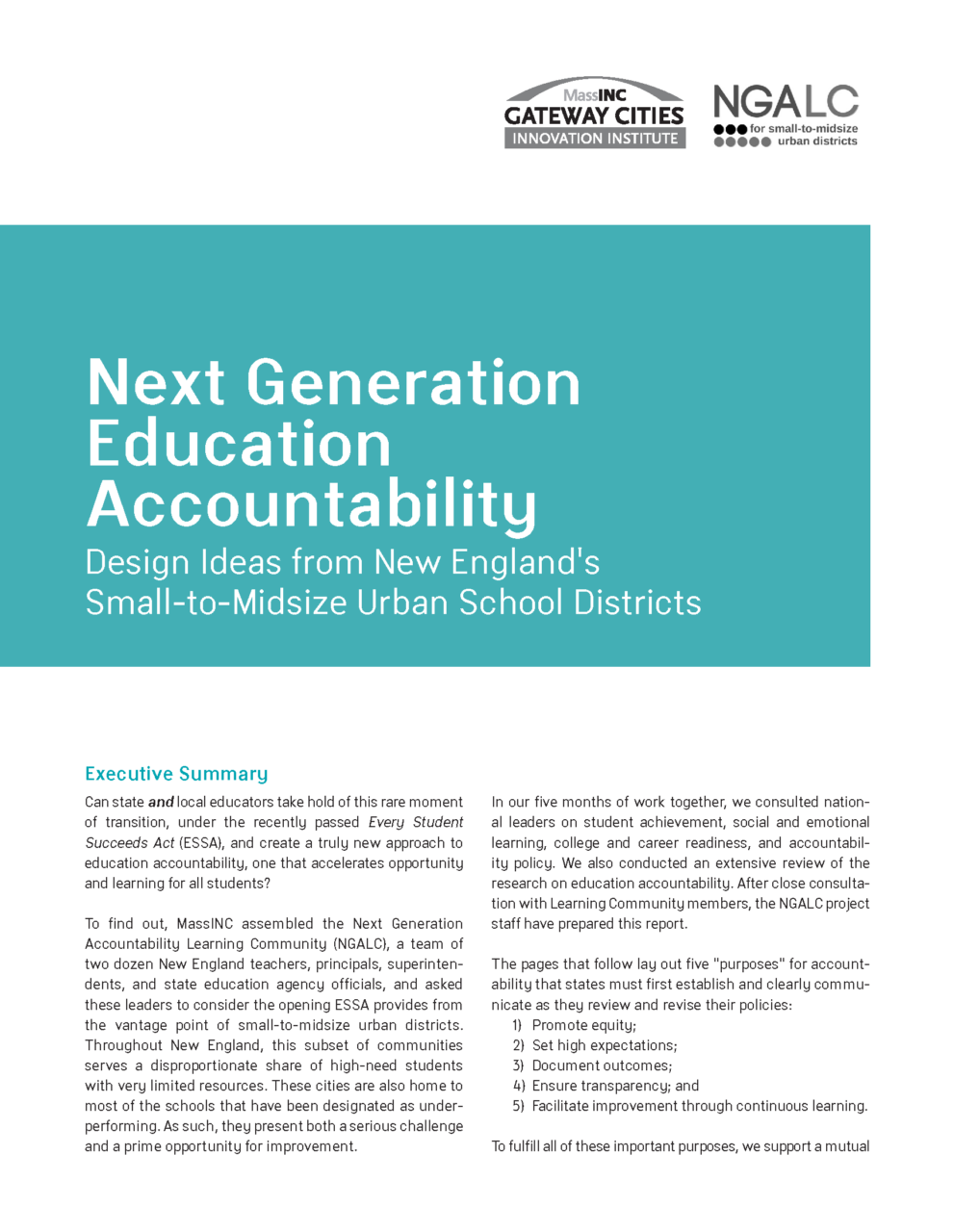Can policymakers take hold of the recently passed Every Student Succeeds Act (ESSA) and create new approaches to education accountability that accelerate opportunity and learning for all students? With generous support from the Barr Foundation, the Next Generation Accountability Learning Community (NGALC) examined this question over the past five months with an emphasis on small-to-midsize cities—communities that serve a disproportionate share of disadvantaged students across the New England states.
After close consultation with Learning Community members, the NGALC project staff have prepared this final report. This paper refines accountability purpose and design principles developed previously in two Learning Community Dispatches. Extensive dialog around these principles has led us toward a “mutual accountability” approach.
To realize this model, we call on states to set a high bar for student achievement, and work with districts to design next generation assessments to more clearly and deliberately measure and support improvement in teaching and learning. We challenge states to acknowledge the leadership and commitment of local school districts and engage them in accountability policy making. And we challenge local districts to set priorities and develop specific local accountability strategies that address them.
